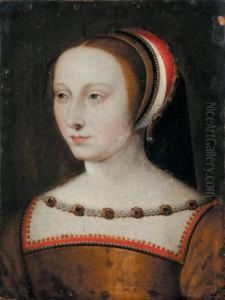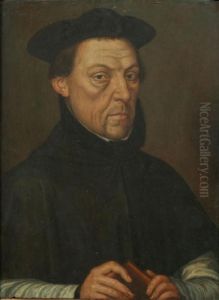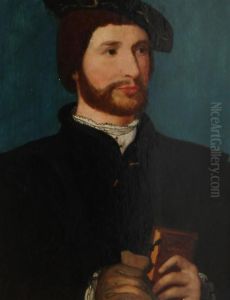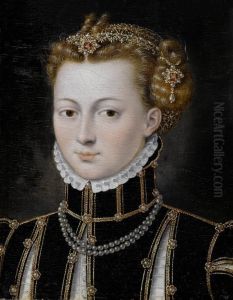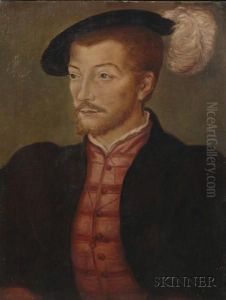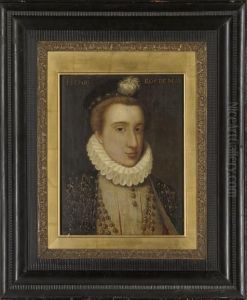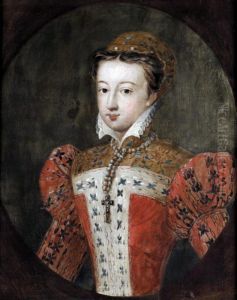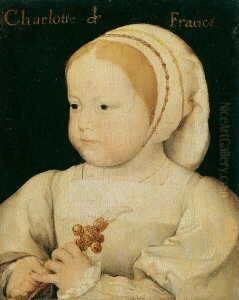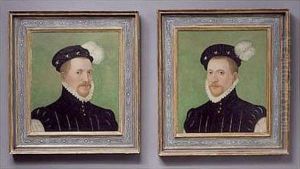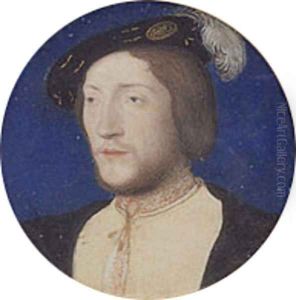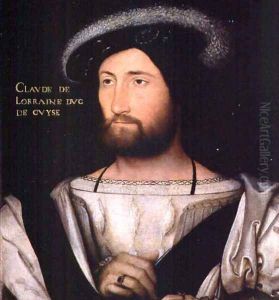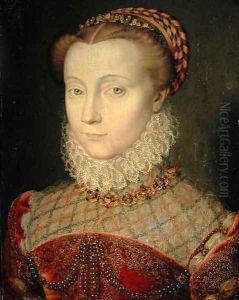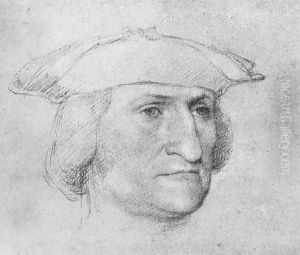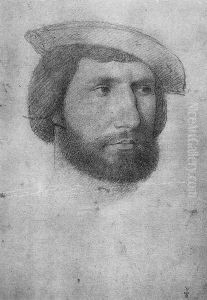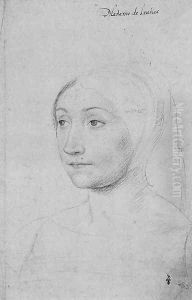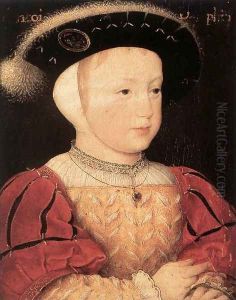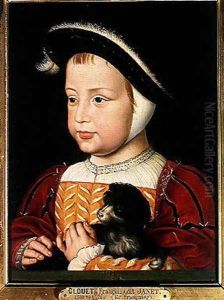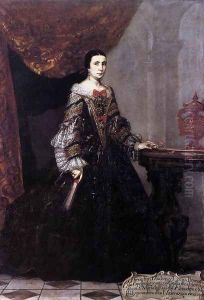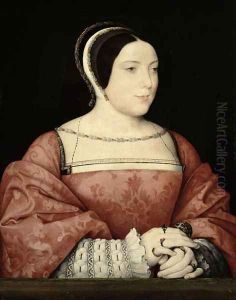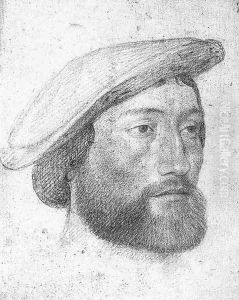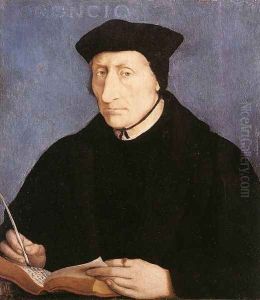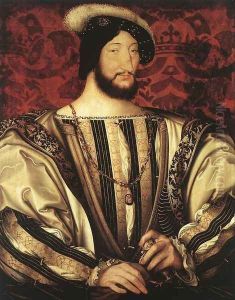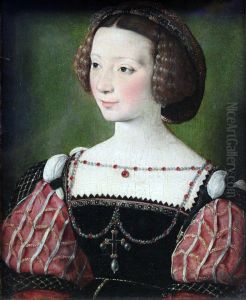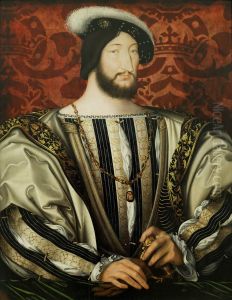Jean Clouet Paintings
Jean Clouet was a painter and miniaturist of the French Renaissance, who played a pivotal role in the introduction of Renaissance art in France. Born around 1480 in the Netherlands or the Duchy of Burgundy, Clouet is known to have spent most of his life in France, becoming a court painter to King Francis I.
Clouet's early life and training are not well documented, but it is believed that he was trained in the Low Countries, which was a center for artistic innovation at the time. He likely gained a strong foundation in the Northern Renaissance style, known for its detailed realism and complex iconography.
By 1516, Clouet had become an established painter in France, receiving commissions from the French court. He was naturalized as a French citizen in 1518 and served as a valet de chambre to the king, a position that included the roles of court painter and advisor on artistic matters.
Jean Clouet's work primarily comprised portraits and illuminated manuscripts. His portraits were especially notable for their refined elegance and keen observation, capturing the personality and stature of his sitters. Among his most famous works is the portrait of Francis I, which showcases the king's authority and taste for Renaissance culture. Clouet's style is characterized by a harmonious blend of French and Northern Renaissance influences, with a subtle use of light and shade and a delicate approach to detail.
Clouet also played a significant role in the formation of the French school of portraiture. He trained his son François Clouet, who succeeded him as a court painter and continued his father's tradition, contributing to the development of the French portrait style.
Jean Clouet's contributions to French art were significant in establishing a distinctly French Renaissance style that maintained a dialogue with Italian and Northern European artistic traditions. His works remain important examples of Renaissance portraiture and continue to be studied and admired for their historical and artistic value. Clouet passed away in 1541, leaving behind a legacy that would influence French painting for generations.


